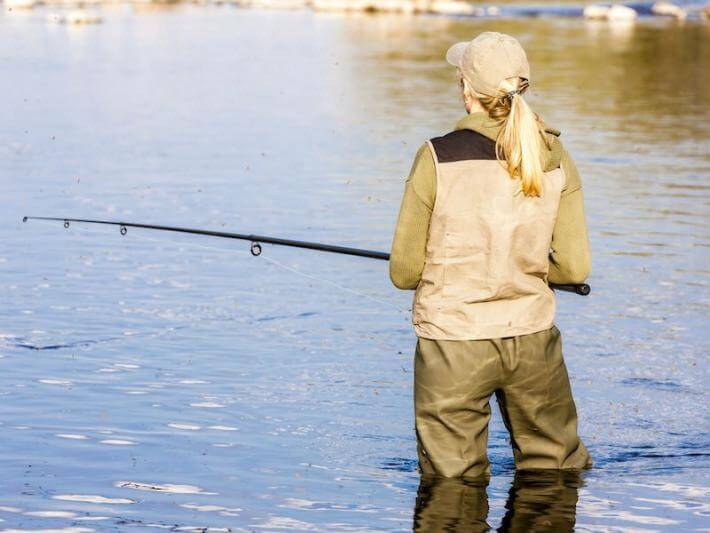What Is the Gender-Neutral Version of ‘Fisherman’?
Once you start thinking about it, there are quite a few possibilities.
Mignon Fogarty

“Fisherfolk” and “fisher” are the two best options for a gender-neutral alternative to “fisherman,” but it also depends on where you live.
During this year’s announcement of the AP Stylebook updates, the editors announced significant updates to the gender-neutral language entry, but they also noted that they hadn’t included gender-neutral word for “fisherman,” which led to a lively discussion in the accompanying chatroom and on Twitter.
Angler
Many people suggested the word “angler,” which appealed to me at first too, but then many other people pointed out that “angler” seems to describe someone using a pole to fish rather than professionals who go out in big boats and use nets or other gear like crab pots.
Fishfolk and Fisherfolk
“Fishfolk” and “fisherfolk” were two other common suggestions, and it seems as if “fisherfolk” may be in common use in Asia. Sara Rossi said that “Economic development agencies in Asia Pacific call people who fish for a living ‘fisherfolk,’” and Sophia Romero, who goes by Mighty Red Pen, said, “‘Fisherfolk’ was what we used when I worked for a nonprofit that supported projects that helped fisherfolk in Asia.” Also, if you do a Twitter search, you find a lot of people who seem to be in Asia using it. So “fisherfolk” is definitely an option.
People had funny comments about it too though.
A Twitter user with the handle @LaXtimaAbella said, “‘Fishfolk’ sounds like the working-class version of ‘merfolk.’ It’s like they’re the salt of the earth, but they’re actually the salt of the SEA!” and Brandon Bullard said, “‘Fishfolk’ has a Lovecraftian ring, like a more derogatory reference for someone who has the Innsmouth look” (which is something from an H.P. Lovecraft short story “Shadow over Innsmouth).
I’d be a little wary of using “fisherfolk” in North American English.
Fish Harvester
An alternative that Gina MacArthur says they use in Newfoundland is “fish harvester.”
Scallopers and Clammers
Getting back to all the “be specific” advice from the AP Stylebook, Rita Owens says she grew up in New Bedford, Massachusetts, a great seaport, and they would often call people scallopers or clammers. (She also called out “Fish Mary,” the only female lumper in New Bedford in the 1950s and 1960s. A lumper is someone who unloads a boat after it returns to port.)
Piscator
Another possibility suggested by both Jack Pullara and Paul Parsons is “piscator,” an archaic word that we originally borrowed from the Latin word for the verb “to fish.”
It’s the same root that gives us “piscatology,” the practice or study of fishing, and the more familiar word, “Pisces,” the astrological sign whose symbol is the fish.
Fisher
Nevertheless, the term that people seem to have settled on in North America is simply “fisher.” Alec Fromage pointed out that it may sound odd at first, but it’s similar to “farmer” and “rancher.” And it is also parallel to “clammer” and “scalloper.”
In fact, Martin Dunphy said, “I’ve seen ‘fisher’ used for decades now. Thought it was a given, actually,” and the lexicographer Liz Potter said that “‘Fisher’ is the term used in law of the sea.”
Webster’s New World College Dictionary and the online edition of the Merriam-Webster dictionary also include “fisher” as “a person who fishes.”
After going through the entire discussion a couple of times, I recommend “fisherfolk” if you’re writing for an Asian audience, but “fisher” if you’re writing for an audience in primarily English-speaking countries, unless your local industry or government uses something else.
Funny Suggestions
And I’ll finish with some of the funniest tongue-in-cheek suggestions:
- Jeffrey O’Malley suggested “fishist.”
- Kevin Lamb suggested, among other things, “Fish-Meister.”
- And Heather Johnson who goes by Linguistics Girl, suggested “fish procurement worker.”
Thanks to everyone who participated in that discussion. It really was a lot of fun.
Image courtesy of Shutterstock.

